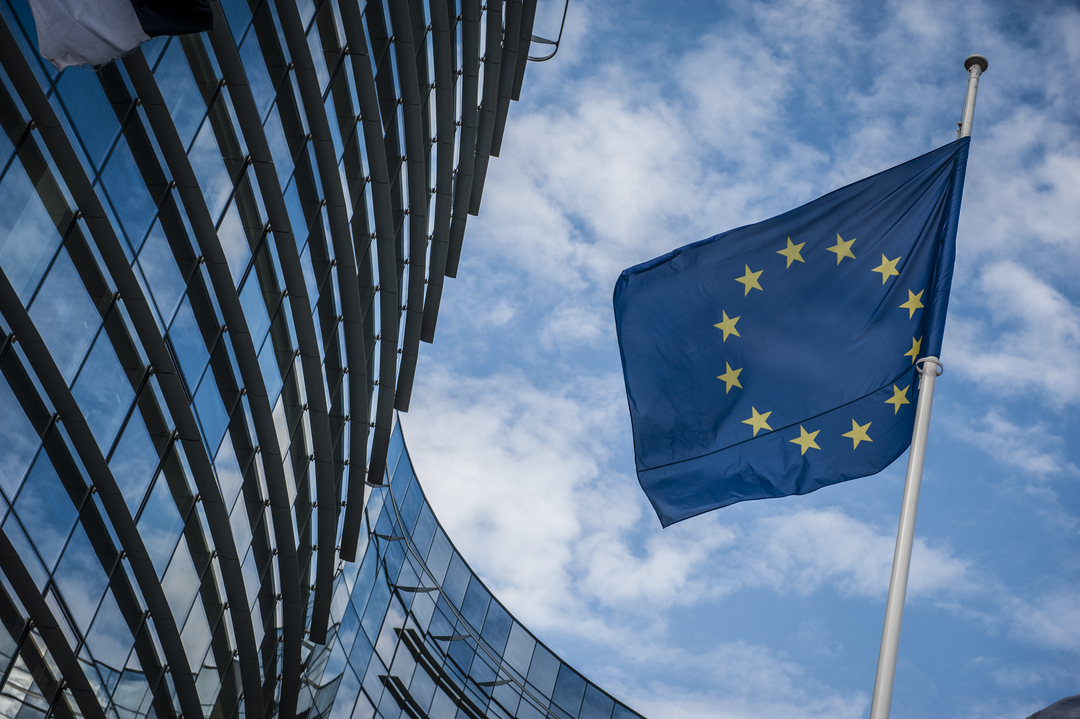![]()
European Union lawmakers have
approved landmark legislation to heavily regulate Apple, Google, Meta, and other big tech firms.
The Digital Markets Act (DMA) and Digital Services Act (DSA) were proposed by the European Commission in December 2020. Now, collected in a "Digital Services Package," the legislation has been formally adopted by the European Parliament and seeks to address "gatekeeper" big tech companies.
Apple is almost certain to be classified as a "gatekeeper" due to the size of its annual turnover in the EU, its ownership and operation of platforms with a large number of active users, and its "entrenched and durable position" due to how long it has met these criteria, and will therefore be subject to the rules set out in the DMA. Under the DMA, gatekeepers may have to:
- Allow users to install apps from third-party app stores and sideload directly from the internet.
- Allow developers to offer third-party payment systems in apps and promote offers outside the gatekeeper's platforms.
- Allow developers to integrate their apps and digital services directly with those belonging to a gatekeeper. This includes making messaging, voice-calling, and video-calling services interoperable with third-party services upon request.
- Give developers access to any hardware feature, such as "near-field communication technology, secure elements and processors, authentication mechanisms, and the software used to control those technologies."
- Ensure that all apps are uninstallable and give users the ability to unsubscribe from core platform services under similar conditions to subscription.
- Give users the option to change the default voice assistant to a third-party option.
- Share data and metrics with developers and competitors, including marketing and advertising performance data.
- Set up an independent "compliance function" group to monitor its compliance with EU legislation with an independent senior manager and sufficient authority, resources, and access to management.
- Inform the European Commission of their mergers and acquisitions.
The DMA also seeks to ensure that gatekeepers can no longer:
- Pre-install certain software applications and require users to use any important default software services such as web browsers.
- Require app developers to use certain services or frameworks, including browser engines, payment systems, and identity providers, to be listed in app stores.
- Give their own products, apps, or services preferential treatment or rank them higher than those of others.
- Reuse private data collected during a service for the purposes of another service.
- Establish unfair conditions for business users.
The Digital Services Act (DSA), which requires platforms to do more to police the internet for illegal content, has also been approved by the European Parliament.
The DMA says that gatekeepers who ignore the rules will face fines of up to 10 percent of the company's total worldwide annual turnover, or 20 percent in the event of repeated infringements, as well as periodic penalties of up to 5 percent of the company's total worldwide annual turnover. Where gatekeepers perpetrate "systematic infringements," the European Commission will be able to impose additional sanctions, such as obliging a gatekeeper to sell a business or parts of it, including units, assets, intellectual property rights, or brands, or banning a gatekeeper from acquiring any company that provides services in the digital sector.
So far, Apple has heavily resisted attempts by governments to enforce changes to its operating systems and services. For example, Apple simply chose to pay a $5.5 million fine every week
for months in the Netherlands instead of obey orders from the Authority for Consumers and Markets (ACM) to allow third-party payment systems in Dutch dating apps.
EU antitrust chief Margrethe Vestager has set up a DMA taskforce, with about 80 officials expected to join, but some lawmakers have called for an even bigger taskforce to counter the power of big tech companies. The Digital Services Package now simply needs to be adopted by the European Council before coming into force in the fall.
Beyond the European Union, Apple's ecosystem is increasingly coming under intense scrutiny by governments around the world, including in
the United States,
the United Kingdom,
Japan,
South Korea, and more, with a clear appetite from global regulators to explore requirements around app sideloading and interoperability.
Further cooperation is expected between governments around the world on the issue and
experts are anticipating a "brutal battle" between Apple and global regulators.
Article Link:
EU Approves Landmark Legislation to Regulate Apple and Other Big Tech Firms








